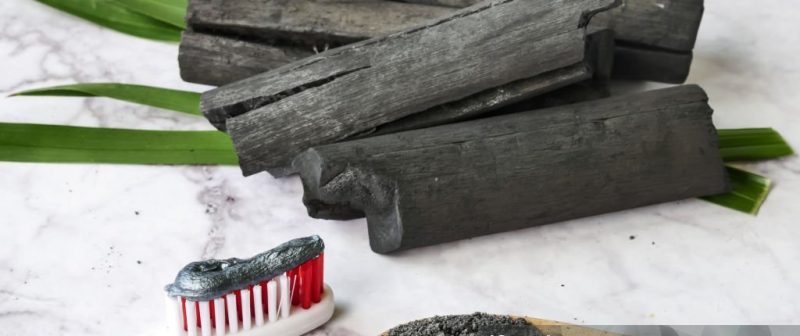Adsorption In Charcoal And Food Poisoning

Adsorption In Charcoal And Food Poisoning
Activated charcoal has long been recognized as a remedy for various health issues, including food poisoning. Its effectiveness hinges on a process known as adsorption, which allows it to bind to toxins and chemicals in the gastrointestinal tract. In this article, we will explore how adsorption works, the role of activated charcoal in treating food poisoning, and the broader implications of this treatment approach.
Charcoal and food poisoning
What is activated charcoal?: To understand charcoal and food poisoning, it is essential to know the mechanism of activated charcoal. Activated charcoal is a form of carbon that has been processed to create a vast network of tiny pores. This structure significantly increases its surface area, allowing it to capture and hold onto various substances, including toxins. It is commonly used in medical settings for poisoning and overdose cases, as well as for general detoxification purposes.
How is activated charcoal made?: Activated charcoal is produced by heating carbon-rich materials—such as wood, coconut shells, or peat—at high temperatures in the presence of gas. This process removes water and volatile compounds while enhancing the porous structure. The end product is a highly adsorbent material with the ability to trap various substances, making it suitable for medicinal use.
Science of adsorption
What is adsorption?: Adsorption is a physical process where molecules from a gas or liquid adhere to the surface of a solid material, forming a thin film. This is distinct from absorption, where one substance penetrates another. In the context of activated charcoal, adsorption occurs when toxins in the gastrointestinal tract bind to the surface of the charcoal particles.
Mechanism of adsorption: The effectiveness of activated charcoal in treating food poisoning can be attributed to its large surface area and porous structure. When ingested, the charcoal particles come into contact with various toxins, chemicals, and pathogens in the digestive system. The following mechanisms explain how adsorption takes place:
1) Surface area: Activated charcoal can have a surface area of up to 2,000 square meters per gram. This immense area allows for a substantial number of toxin molecules to bind to its surface.
2) Pore structure: The microscopic pores within activated charcoal provide sites for adsorption. Smaller molecules can enter these pores and adhere to the surface, effectively trapping them.
3) Chemical interactions: Various chemical forces, such as van der Waals forces, play a role in the adsorption process. These forces facilitate the binding of toxins to the charcoal particles, enhancing the effectiveness of activated charcoal as a detoxifying agent.
4) Competitive binding: Activated charcoal can bind to multiple substances simultaneously, allowing it to compete with toxins in the gastrointestinal tract. This competitive binding helps to reduce the absorption of harmful agents into the bloodstream.
Activated charcoal and food poisoning
How does activated charcoal help with food poisoning?:
Food poisoning occurs when a person ingests contaminated food or water containing harmful bacteria, viruses, or toxins. Common culprits include pathogens such as Salmonella, E. coli, and Staphylococcus aureus. Activated charcoal can play a role in managing food poisoning by:
1) Adsorbing toxins: When activated charcoal is ingested shortly after consuming contaminated food, it can bind to the toxins produced by these pathogens. By trapping these harmful substances, activated charcoal can help mitigate their effects.
2) Reducing absorption: By adsorbing toxins in the gastrointestinal tract, activated charcoal reduces the overall absorption of these harmful substances into the bloodstream, potentially lessening the severity of symptoms associated with food poisoning.
3) Alleviating symptoms: While activated charcoal may not cure food poisoning, it can help alleviate symptoms like nausea and vomiting by reducing the load of toxins present in the digestive system.
Limitations of activated charcoal for food poisoning
Despite its potential benefits, it is essential to understand that activated charcoal is not a cure-all for food poisoning. Some limitations include:
1) Not effective against all toxins: Activated charcoal may not adsorb certain bacterial toxins or chemical contaminants effectively. Its efficacy can vary depending on the specific toxin involved.
2) Timing is critical: Activated charcoal is most effective when taken shortly after toxin ingestion. Delays in administration can significantly reduce its effectiveness.
3) Potential side effects: While generally considered safe for short-term use, activated charcoal can cause gastrointestinal side effects, such as constipation or black stools. In rare cases, it may lead to more severe complications, like bowel obstruction.
4) Interference with medications: Activated charcoal can adsorb medications, reducing their effectiveness. This interaction is particularly concerning for individuals who are on prescription medications for other health conditions.
Using activated charcoal safely
Dosage and administration: When using activated charcoal for food poisoning, it is crucial to follow proper dosage guidelines. Common recommendations for adults suggest a dose of 25 to 100 grams of activated charcoal, ideally taken within an hour of ingestion of the toxin. For children, lower doses based on body weight are typically advised.
Consulting a healthcare professional: Before using activated charcoal, particularly for food poisoning, it is essential to consult a healthcare professional. They can provide guidance on appropriate usage and monitor for potential complications.
Choosing the right product: Activated charcoal is available in various forms, including capsules, tablets, and powders. When selecting a product, opt for pharmaceutical-grade activated charcoal to ensure purity and safety. Avoid using regular charcoal or briquettes, as these can contain harmful additives.
Role of adsorption in other detoxification methods
Other uses of activated charcoal
Beyond food poisoning, activated charcoal has a variety of applications due to its adsorption properties. Some of these include:
1) Poisoning and overdose: Activated charcoal is frequently used in emergency medicine to treat cases of drug overdose or poisoning. Its ability to adsorb a wide range of pharmaceuticals makes it a valuable tool in these situations.
2) Water filtration: Activated charcoal is commonly used in water filtration systems to remove impurities and toxins, improving the quality of drinking water.
3) Air purification: Due to its adsorption capabilities, activated charcoal is also employed in air purifiers to capture airborne toxins, odors, and pollutants.
Alternative adsorbents
While activated charcoal is the most well-known adsorbent, other materials are also being explored for their adsorption properties. These include:
1) Zeolites: Naturally occurring minerals with porous structures that can adsorb a variety of substances, including heavy metals and ammonia.
2) Silica Gel: Often used as a desiccant, silica gel can adsorb moisture and certain gases.
3) Clay Minerals: Some clays, like bentonite, possess adsorptive properties and are used in various applications, including detoxifying agents.
Adsorption in charcoal
Activated charcoal has become a popular remedy for food poisoning, primarily due to its ability to adsorb toxins through a process known as adsorption. While it offers potential benefits in managing symptoms, it is not a universal solution and comes with limitations. Understanding how adsorption works, along with the proper usage and safety considerations, is essential for effectively utilizing charcoal in treating food poisoning.
As with any health issue, consulting a healthcare professional is vital when considering the use of activated charcoal. By prioritizing safe practices and informed decisions, individuals can better navigate food poisoning and its associated challenges. The role of charcoal in food poisoning treatment is just one aspect of its broader applications, showcasing its versatility as a natural remedy and detoxifying agent.



